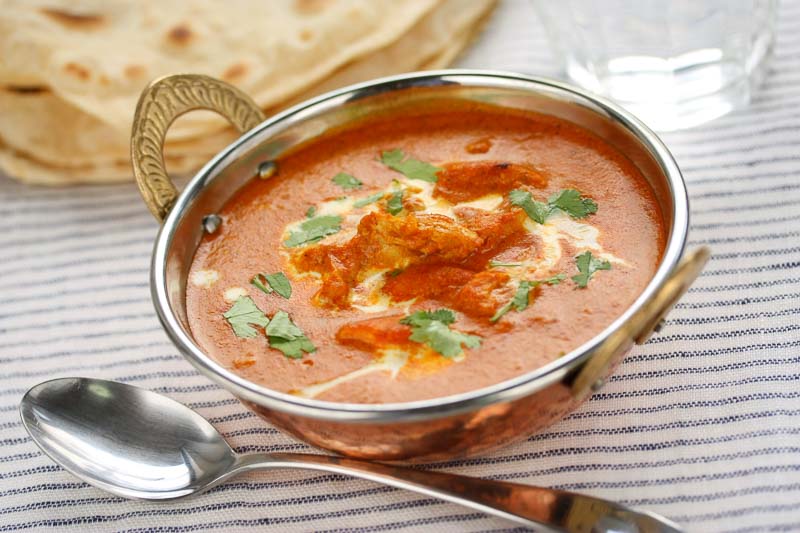Introduction: An Overview of Traditional Indian Cuisine
Welcome to our blog where we dive into the flavorful world of traditional Indian cuisine. Indian food, known for its rich spices and diverse flavors, is not just about taste but also carries numerous health benefits. This cuisine, which varies from region to region, is a blend of flavors, colors, seasoning, nutritional balance, fragrance, taste, and visual appeal. From the use of a variety of vegetables and fruits to the incorporation of numerous spices like turmeric, ginger, and garlic, Indian dishes are loaded with essential nutrients. Today, we will unravel the health benefits hidden in this vibrant cuisine. So, let’s embark on this culinary journey that tantalizes your taste buds and nourishes your body!
The Nutritional Value of Indian Spices and Their Health Benefits
Indian spices are packed with a myriad of health benefits and high nutritional value. Turmeric, for instance, is famous for its anti-inflammatory and antioxidant properties. Cumin seeds aid in digestion and boost the immune system, while coriander seeds are known for their ability to lower blood sugar levels. Similarly, cardamom helps lower blood pressure, and cinnamon can reduce heart disease risk. Moreover, these spices are rich in vitamins and minerals, like iron, calcium, and magnesium, that are essential for a healthy body. Hence, incorporating Indian spices into your diet not only enhances the flavor of your meals but also significantly contributes to your overall health and wellbeing.
Benefits of High Fiber Foods in Indian Cuisine
High fiber foods play a crucial role in Indian cuisine, offering numerous health benefits. Consuming high fiber foods like lentils, chickpeas, brown rice, and various fruits and vegetables commonly found in Indian dishes can aid in digestion, help maintain a healthy weight, and reduce the risk of chronic diseases such as diabetes and heart disease. Furthermore, the high fiber content in these foods can help control blood sugar levels, making them a great choice for people with diabetes. Not to mention, they keep you feeling full for longer, which can aid in weight management. So, the next time you enjoy a hearty Indian meal, know that it’s not just tantalizing your taste buds, but also contributing to your overall health.
The Role of Probiotics in Indian Fermented Foods for Digestive Health
Probiotics play a critical role in Indian fermented foods, significantly contributing to digestive health. These beneficial bacteria, found in foods like curd, idli, and dosa, help break down food in our gut, making digestion easier. They also aid in nutrient absorption and strengthen our immune system. Consuming these fermented foods regularly can help maintain a healthy balance of gut bacteria, improving overall digestive health. Therefore, traditional Indian meals, with their rich probiotic content, offer a delicious and natural way to keep your gut happy and healthy.
Antioxidant-Rich Indian Foods and Their Impact on Immune Health
Indian cuisine is packed with antioxidant-rich foods that greatly impact immune health. Ingredients like turmeric, ginger, garlic, and green leafy vegetables, commonly used in Indian dishes, are loaded with antioxidants that help to strengthen the immune system. Turmeric, for instance, contains curcumin which is renowned for its anti-inflammatory and antioxidant properties. Ginger and garlic, on the other hand, are known for their ability to fight off infections. Additionally, Indian food often includes a variety of spices like cumin, coriander, and cinnamon, all of which are rich in antioxidants. Consuming these antioxidant-rich foods regularly can help protect the body from harmful free radicals, thereby boosting overall health.
Indian Vegetarian Dishes: A Healthy and Balanced Diet Option
Indian vegetarian dishes offer a healthy and balanced diet option for those seeking nutritious meals. Packed with a variety of vegetables, lentils, and grains, they provide the body with essential nutrients like vitamins, proteins, and fiber. These dishes are traditionally cooked using various herbs and spices, which not only enhance the flavor but also have numerous health benefits. For instance, turmeric, a common ingredient in Indian cuisine, is known for its anti-inflammatory properties. Similarly, lentils used in dishes like ‘dal’ are a great source of protein. Consuming Indian vegetarian dishes can help maintain a healthy weight, improve heart health, and boost overall wellness. Therefore, embracing traditional Indian food is a delicious way to lead a healthier lifestyle.
Ayurveda and Indian Food: A Holistic Approach to Health
Ayurveda, an ancient Indian system of medicine, significantly influences traditional Indian food. It is a holistic approach that believes in maintaining a perfect balance between the mind, body, and spirit for overall health. Indian food, rich in various spices and flavors, isn’t just about tantalizing your taste buds. It’s also about delivering health benefits. The use of ingredients like turmeric, ginger, garlic, and green chillies in Indian recipes is not merely for taste. These ingredients are known for their medicinal properties. Turmeric is anti-inflammatory, ginger aids digestion, garlic is good for the heart, and green chillies are loaded with Vitamin C. In essence, Ayurveda and Indian food together provide a holistic approach to health, making every meal a healthy feast.
Traditional Indian Beverages and their Health Benefits
Traditional Indian beverages are not just refreshing, they also offer a host of health benefits. Take for example the popular ‘Masala Chai’, a spiced tea concoction filled with antioxidants that boost immunity and aid digestion. ‘Lassi’, a creamy yogurt-based drink, is excellent for gut health and digestion. ‘Aam Panna’, made from raw mangoes, is known for its heat-resistant properties and is a rich source of vitamins. These beverages are not just about quenching your thirst, they are about nourishing your body too. So next time you’re in the mood for a drink, try these Indian beverages for a healthy twist.
Indian Superfoods: Ancient Wisdom for Modern Health
Indian Superfoods are a treasure trove of nutrients and have been a part of our diet for centuries. These superfoods, deeply rooted in our tradition, are not only packed with essential vitamins and minerals, but also provide a myriad of health benefits. From the protein-rich lentils, fiber-rich millets, to antioxidant-rich spices like turmeric and ginger, Indian Superfoods offer a holistic approach to health and wellness. They help in boosting immunity, managing weight, controlling diabetes, improving heart health, and much more. Embracing these ancient superfoods in our modern diet can lead us to a healthier and more balanced lifestyle.
Conclusion: Integrating Traditional Indian Foods into Your Daily Diet for Optimal Health.
In conclusion, integrating traditional Indian foods into your daily diet can significantly enhance your overall health. These foods are packed with a variety of spices and herbs that are rich in antioxidants and anti-inflammatory properties. They are also high in fiber and low in saturated fat, promoting heart health and aiding digestion. By incorporating meals like lentil soups, vegetable curries, and whole grain flatbreads into your diet, you can enjoy delicious flavors and reap numerous health benefits. Therefore, don’t hesitate to explore the Indian cuisine; your body will thank you for the nutrient-rich diversity!




